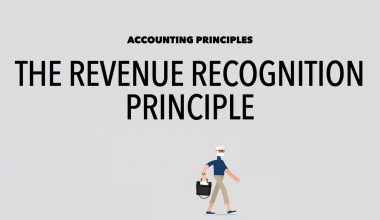Accounting software is a necessary component of any successful business. Depending on the program, it can help you make professional invoices, keep track of payments coming in and going out, find and follow up on past-due receivables, streamline tax management, and run reports that look at your company’s financial health and make projections for the future. We researched some of the most popular platforms on the market today to help you pick the best free accounting software for your small business in 2023.
We looked for accounting software that was inexpensive and simple to use, with time-saving features like automated bank feeds, automatic payment reminders, and online invoicing and payment acceptance. Also, we looked for software that could give us detailed, custom, real-time financial reports. This is important for keeping track of and understanding your business’s finances.
What is Accounting Software?
Accounting software helps businesses streamline and automate their financial management processes, keep accurate records, and improve the operational efficiency of tasks like billing and reconciling.
Benefits of Accounting Software
Accounting software has numerous benefits, including:
- Time-saving: Automation tools can help you save time when doing operations like writing journal entries and reconciling statements.
- Compliance: Many accounting software programs include compliance functions, such as tax preparation and reporting, to assist organizations with compliance.
- Access at any time and any place: With cloud-based accounting software, you may access your account at any time and from any location.
- Integration: Accounting software programs frequently link with other business tools such as CRM and e-commerce platforms.
- Error reduction: Accounting software can assist reduce errors by automating repetitive activities and offering real-time information.
- It is inexpensive: Accounting software is substantially less expensive than hiring an accountant.
- Helps you stay organized: Accounting software may help you keep track of all of your financial information and transactions in one spot.
Best Accounting Software
Accounting software helps small business owners keep track of their accounts payable and receivable, figure out how profitable their business is, and get ready for tax season. Small businesses can frequently use off-the-shelf accounting software without considerable customization. As a business grows, its accounting needs become more complicated. This makes it necessary to use a custom enterprise resource planning (ERP) system.
Before deciding on the top five accounting software companies for business owners, we researched and tried out the best ones. Here are our top recommendations for the best accounting software programs:
#1. QuickBooks Online
QuickBooks Online from Intuit has been one of the most popular accounting programs for small businesses and their accountants and bookkeepers for a long time. The software is in the cloud, and you can use a web browser or a mobile app to get to it.
#2. Xero
This software has an easy-to-use interface and works well with a third-party payroll service. Customers may pay businesses online due to Xero’s connection with Stripe and GoCardless.
#3. FreshBooks
FreshBooks provides greater customization options for invoicing when compared to other accounting tools. Its major role is to send, receive, print, and pay invoices, but it can also manage basic bookkeeping needs for a business. This accounting software makes it easier for service-based businesses to send proposals, keep track of project time, and get paid.
#4. QuickBooks Self-Employed
Intuit makes QuickBooks Self-Employed, which has both an online interface in the cloud and a mobile app. This software was developed to assist freelancers in staying organized throughout tax season each year. QuickBooks Self-Employed lets you track your mileage, sort your spending, organize your receipts, and estimate and file your taxes through TurboTax.
#5. Wave
Wave is great accounting software for a small service-based business that sends out simple invoices but doesn’t need to process payroll. Accountants can use Wave to pull the reports they need to compile a company’s tax return at the end of the year.
#6. NCH
You can use NCH’s free accounting software if your small business has less than five employees. The free edition misses some of the more advanced features intended for larger businesses, but it still has a lot to offer. Income statements, balance sheets, profit and loss (P&L) statements, and sales analysis by item, customer, and salesperson are examples of financial statements you can create. This software is compatible with both Mac and PC platforms.
#7. Zoho Books
Zoho is a complete business software suite, and Zoho Books is its accounting component. The free version has everything you need to keep track of your finances, such as tracking costs and mileage, reconciling, sending invoices, and getting help with emails. One of its best features is that it can work with other Zoho products, like Zoho CRM. This makes it a great alternative if your business already uses Zoho software.
#8. ZipBooks
ZipBooks free accounting software allows you to send an unlimited number of invoices. while some of its competitors limit the number of invoices you can send. This makes it a great choice if invoicing is a big part of how your business makes money. In addition to invoicing, you also get basic reports, vendor and customer management, and digital payments via Square or PayPal. Paid plans start at $15 per month and include auto-billing, reminders, time tracking, and the opportunity to save invoice line items.
#9. Sunrise
If you need free accounting software with detailed profit and loss statements, Sunrise is a great choice. In addition to making P&L statements, you can also process payments, track income, send invoices, handle expenses, and send quotes. It has one subscription plan that costs $19.99 a month and includes features like cash flow insights, automatic expense categorization, and payment integrations.
Best Free Accounting Software for Small Business
Free accounting software is an automated cloud or desktop technology that allows small business owners and financial professionals to handle their books on their computers for free.
Of all, even the best free accounting software for a small business will be limited in its capabilities. You will have to pay to gain access to cutting-edge accounting technologies for your small business.
But researching the best accounting software for a small business can help you decide if you want to be paid for this financial resource. Here are the best free accounting tool options:
#1. MarginEdge
MarginEdge is the best accounting tool for restaurants because it has a spectrum of features tailored exclusively to the food service industry. Also, MarginEdge integrates with popular point-of-sale (POS) systems to seamlessly import sales data and track margins in real time.
#2. Zoho Books
Zoho Books has everything you need to manage your finances, like sending out invoices, balancing your accounts, keeping track of your spending, and making reports. It also has more advanced features that you can use if you want to, like tracking time and keeping track of money for projects.
#3. FreshBooks
FreshBooks is the software for you if you own a small business and don’t have accounting experience. With FreshBooks, it’s easy to make and send invoices, keep track of costs, manage projects and clients, and look at reports.
#4. Wave Accounting
Unlike several “freemium” software products, Wave does not provide a basic free product and then loads it with expensive upgrades. You can add an infinite number of collaborators, as well as bank and credit card connections, to the free accounting software. For small service-based enterprises, it might be a straightforward answer.
#5. Zoho Books
For a reasonable price, Zoho Books offers an excellent set of features and capabilities, while higher-tier licenses allow users to automate workflows and track project profitability. It’s a particularly smart choice for customers who are already familiar with the company’s other in-house apps.
#6. Akaunting
The free plan from Akaunting is designed for freelancers and self-employed entrepreneurs who don’t require services like expenditure monitoring or a general ledger. For a charge, users can select among inventory, double-entry accounting, payroll, and cost monitoring add-ons. Users of Akaunting can modify the open-source software to include only the features they require.
#7. ZipBooks
ZipBooks’ free plan is notable for its Square and PayPal payment interfaces, which some companies only offer on inexpensive plans or as an add-on. In addition to payments, free plan customers can interface with business tools such as Gusto and Slack.
What are the three types of accounting software?
Accounting Software Types:
- Billing/ Invoicing Software.
- Payroll management system.
- ERP Systems.
Is Microsoft Excel an accounting software?
Yes. QuickBooks and Microsoft Excel are two of the most popular accounting systems, but they differ in terms of how they work, how much they cost, and how well they fit into your business structure.
Can I use Excel for bookkeeping?
Yes. Excel is handy for various tasks, including bookkeeping. The spreadsheet-based tool is used by businesses all over the world.
Do accountants use Excel or Quickbooks?
QuickBooks is used by accountants. QuickBooks is used by CPAs. Also, QuickBooks is used by payroll managers. Millions rely on the software because it is powerful and versatile, but it is only as good as the person pulling the strings.
What are the 2 main types of accounting?
The cash method and the accrual method are the two most used accounting procedures.
What are 5 software examples?
Examples of software include:
- macOS.
- Microsoft Defender.
- Linux.
- Windows 11.
- Windows Disk Cleanup.
- Google Drive.
- Todoist.
- Asana.
Can you use Excel like QuickBooks?
Not at all. QuickBooks automates the majority of the work for you, whereas Excel forces you to do everything from scratch. QuickBooks Online is far easier to set up and use for bookkeeping than Excel.
What are the 3 common uses for Excel?
The main uses of Excel include:
- Data entry.
- Data management.
- Accounting.
Is Excel a Quickbook?
No. Excel is a spreadsheet program that can be configured to perform the same thing if you have the time and expertise. QuickBooks Online, on the other hand, is software that is specifically designed to make tracking your company’s income, expenses, assets, and obligations as straightforward as possible.
What Excel skills do accountants need?
Excel abilities that are most useful in finance and accounting include:
- Spreadsheet Accessibility
- VLOOKUP and HLOOKUP.
- Making use of pivot tables.
- Auditing formulas.
- Data Validation.
- What If analysis.
- Making use of templates.
- Using Proper Cell Referencing.
Do accountants use Excel a lot?
Yes. You almost likely spend some time in Microsoft Excel if you work in accounting or finance.
Why not use Excel for accounting?
One of the most difficult issues with Excel is that it is often not apparent until it is too late: inconsistent spreadsheets. This occurs frequently. Because Excel isn’t a one-stop shop for all of your accounting, budgeting, and inventory needs, you must manually input and alter data in many areas.
Can you learn QuickBooks for free?
Yes. QuickBooks Online Certification training and examinations are accessible in QuickBooks Online Accountant for free to accounting professionals. Learn how to better serve your clients by gaining credentials that will help your practice expand.
How hard is QuickBooks to learn?
Learning to use QuickBooks is simple for those who are familiar with accounting ideas and how accounting software works, but it can be difficult for those who are technologically challenged or have no bookkeeping experience.
Conclusion
What should you do now that you’ve gone over your top fifteen free accounting software options for small businesses and learned about other options?
Your following actions will be determined by the choice you make. If you’re determined to use free accounting software for your small business, it’s time to get started. Fortunately, you can check out a few and determine which ones work best for you without incurring any costs.
Related Articles
- FREE PROJECT MANAGEMENT TOOLS EXCEL: All You Need to Know
- Project Management Tools Excel Free: All You Need To Know, Types, and Free Tools To Use
- Top Best 10+ BOOKKEEPING SYSTEMS FOR SMALL BUSINESS for 2023
- QuickBooks Accountant: Basic Guide for Optimal Results (+ Quick Tools)
- Best 15+ INVENTORY SYSTEMS FOR SMALL BUSINESS in 2023 (+ Free Options)






